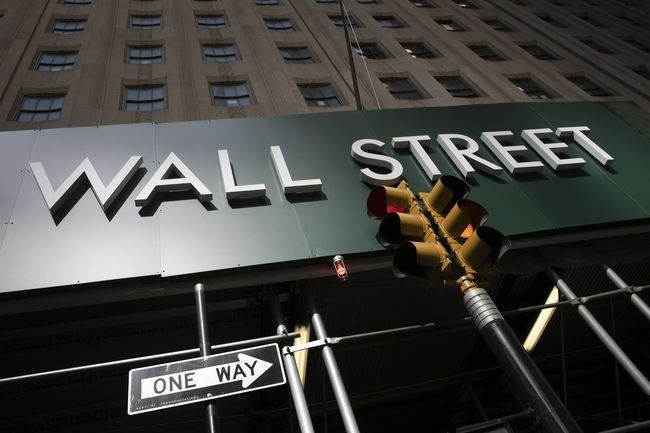
Table of Contents
Wall Street
Wall Street is a renowned financial district located in Lower Manhattan, New York City. It is synonymous with the American financial Industry and serves as a hub for numerous financial institutions, including banks, investment firms, and stock exchanges. Wall Street gained its prominence due to its historical role in the development of the U.S. Capital markets.

It is home to the New York Stock Exchange (NYSE) and NASDAQ, where stocks and other securities are traded. Wall Street represents the heart of global finance, where billions of dollars are exchanged daily, and decisions made within its institutions can impact economies worldwide.
History of Wall Street
Having its roots in the late 18th century as a physical wall built by Dutch settlers in New York City, Wall Street's history spans several centuries. Over time, the wall was dismantled, but the name stuck. In 1792, the Buttonwood Agreement was signed, establishing the New York Stock Exchange (NYSE) and formalising financial activities in the area. Over time, it has transformed into a renowned financial centre, bearing witness to notable occurrences such as the Panic of 1907 and the stock Market crash of 1929. Today, it remains a symbol of global finance, playing a central role in shaping markets and driving economic activity.
Functioning of Wall Street
Wall Street operates as a complex ecosystem of financial institutions, investors, traders, and regulatory bodies. Here's a simplified explanation of its functioning:
1. Financial Institutions: Wall Street is home to various financial institutions, including investment banks, commercial banks, asset management firms, and Insurance companies. These institutions play a vital role in Offering financial services, such as capital raising, underwriting securities, and facilitating transactions.
2. Stock Market: The New York Stock Exchange (NYSE) stands as the predominant stock exchange located on Wall Street. It serves as a platform where companies list their stocks, and investors engage in buying and selling these securities through brokerage firms. By facilitating such transactions, the stock market fulfils a crucial role in enabling companies to raise capital while providing investors with the chance to trade securities.
3. Trading: Trading on Wall Street occurs through brokers and electronic Trading platforms. Investors can place orders to buy or sell various financial instruments such as stocks, Bonds, commodities, and other assets. The trading process involves matching buyers and sellers, executing transactions, and determining prices based on supply and demand.
4. Investment Strategies: Wall Street is a hub for investment professionals who analyse financial data, conduct research, and develop investment strategies. These professionals may include Portfolio managers, financial advisors, and analysts. They provide insights and recommendations to investors on how to manage their portfolios and maximise returns.
5. Regulatory Oversight: Wall Street is subject to regulatory oversight by government agencies, such as the Securities and Exchange Commission (SEC). These agencies enforce rules and regulations to ensure fair trading practices, protect investors, and maintain market integrity.
6. Economic Impact: Wall Street's activities have a significant impact on the Economy. The performance of financial markets influences business and consumer confidence, access to capital, and overall Economic Growth. Wall Street also plays a role in corporate governance, mergers and acquisitions, and funding innovation through venture capital and private equity.
Talk to our investment specialist
Impact of Wall Street on the Economy
In 2023, Wall Street continues to wield a significant influence on the global economy. The actions of major financial institutions located on Wall Street, such as investment banks and asset managers, impact global financial markets and investor sentiment. The performance of Wall Street indices, like the S&P 500 and the Dow Jones Industrial Average, can serve as indicators for global market trends. Moreover, Wall Street's role in providing capital, facilitating mergers and acquisitions, and driving innovation in sectors like technology and finance affects the global investment landscape. International economies remain interconnected with Wall Street, making their stability and performance crucial for global economic stability.
Future of Wall Street
The future of Wall Street is poised for transformation as the financial industry continues to evolve. Technological advancements like artificial intelligence, blockchain, and digital currencies are reshaping traditional practices. Fintech startups are disrupting traditional banking and investment models, challenging the dominance of established Wall Street institutions. Regulatory reforms and a focus on sustainable Investing are driving changes in how financial markets operate. Additionally, the rise of global economic powers like China may shift the balance of influence in the financial world. To thrive in the future, Wall Street must embrace innovation, adapt to changing Market Dynamics, and navigate the complexities of a digitally-driven, interconnected global economy.
Final Thoughts
Wall Street's enduring legacy as a powerful and influential force in the global economy is undeniable. From its modest beginnings to its current status as the epicentre of Capitalism, Wall Street has shaped markets, fostered innovation, and impacted lives worldwide.
All efforts have been made to ensure the information provided here is accurate. However, no guarantees are made regarding correctness of data. Please verify with scheme information document before making any investment.










